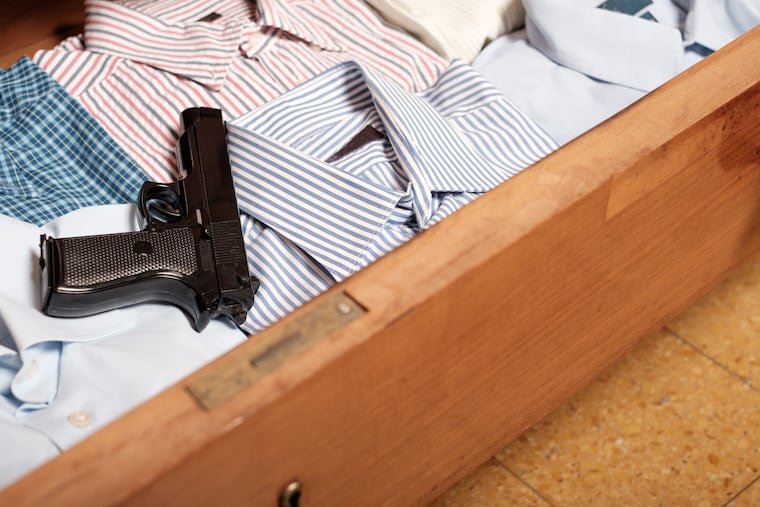Before playdates, ask about guns at home | Expert Opinion
As a pediatrician and a parent, I approach the question of gun ownership by focusing on general safety. I ask about guns in the same breath as I ask about car seats, pools, and food allergies.

Sending your kid on a playdate at a friend’s house? The American Academy of Pediatrics recommends that you ask whether the family has guns at home.
One out of three homes with kids has guns, according to the academy. Of those, only one out of five homes lock up their guns and store ammunition separately.
Yet the question often goes unasked because we don’t know how to broach a potentially awkward conversation. Others may assume their friends don’t own guns or, if they do, know how to store them safely.
So how do you ask the question? And what do you do if they have guns?
As a pediatrician and a parent, I approach the question of gun ownership by focusing on general safety. I ask about guns at the same time as I inquire about car seats, pools, and food allergies:
“Without judgment, wondering if you have any guns in your home? If so, I would ask that they are locked up and stored safely. Also, we don’t have any food or pet allergies. Looking forward to getting together!”
Before hosting a playdate, I volunteer this information, hoping to destigmatize and normalize asking:
“Hello! Just so you know, we are a smoke-free, gun-free home with a dog and two cats. We don’t have a pool, but bring some boots for muddy play in the creek with adult supervision. Looking forward to seeing you soon.”
If you’re worried another parent might respond negatively to the question, frame it as a developmental concern: “My child is always getting into everything” or “you know how impulsive teens are,” are ways to focus on child behavior rather than the adults.
Easily accessible guns are a risk for unintentional shootings, such as a toddler who finds a gun. They’re also a major risk for those with suicidal thoughts.
If that doesn’t work, blame me. “Dr. Lockwood told me to ask you about guns.”
Asking the question is hard, but so is how you handle the answer.
If they own a gun, you want to ensure that it is locked and stored separately from ammunition, which lowers the risk of self-inflicted firearm injury by 78% and unintentional firearm injury by 85% for children and teens.
If the gun owner cannot ensure safe storage of their gun, you can suggest an alternative location for the playdate. As the “It Doesn’t Kill to Ask” campaign says, simply asking about unlocked guns in the home, while awkward, can potentially prevent some instances of the leading cause of death in children and teens.
Katie Lockwood is a pediatrician with the Children’s Hospital of Philadelphia and associate professor of pediatrics at the Perelman School of Medicine at the University of Pennsylvania.